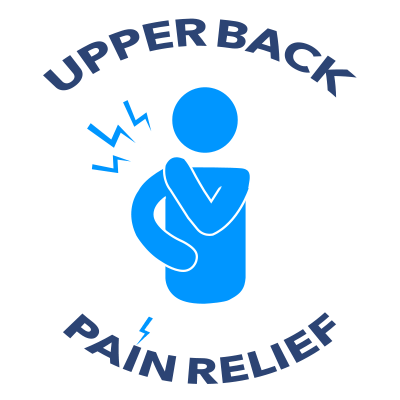How To Prevent Upper Back Pain
How To Prevent Upper Back Pain
By: Melissa A. Kay, staff writer
Upper back pain can be anything from annoying to agonizing. You may feel a dullness, cramping, pinching, or throbbing, (or something even worse) be it sporadic or chronic. However your specific upper back pain woes may present themselves, prevention is paramount in upper back pain developing in the first place.
If you are worried that you may be at risk for upper back pain or already feel some discomfort in that region, now’s the time to act before a full-fledged flare up puts you in a painful predicament. These three tips are easy to implement – just make a few changes and your upper back will thank you.
Perk Up Your Posture
Good posture is a preventative measure in counteracting the onset of upper back problems. Too many of us sit slumped over, throwing our body’s alignment out of whack. With desk jobs comes sitting in one spot for hours on end, and maintaining a straight spine slowly slips out of our frame of mind. While it may take time to develop the habit of sitting upright, it’s important to catch yourself when you feel your shoulders start to roll forward. Bring them back and balanced, and your comfort level adjust to your new and improved positioning. If you need a “coach” to keep you keyed into your posture, go high-tech for some encouragement. Lumo Lift is a tiny wearable that could assist you until it comes second-nature.
Your chair could play a role in your less-than-stellar posture as well. Investing in a sturdy desk chair with ample back support and decent structure could be a game-changer in how your body feels, particularly when it comes to your upper back. If you can’t get a new chair, think about back support pillows or lumbar cushions. These will align your body allowing you to prop up with less strain on your back as a whole, including the upper back. Check out these chairs that could change the way you sit for the better.
Additionally, the rampant use of cell phones has us head down half the time. If you must text, type, scroll, or swipe, hold your phone at eye level rather than bending your neck to look down. And to save yourself from any other injuries, refrain from this action while walking! Speaking of walking, hold your chin high with shoulders back as you put one foot in front of the other. Proper pedestrian posture is just as critical.
Buy the Right Bags
You may need to lug around a load of stuff from home to the office, or perhaps you’re a new parent with baby gear for on the go. No matter what you’re carrying or why, toting it around safely and properly is essential if you want to avoid upper back pain. From the type of bag to how you hold it, changing up your carry-on habit will make a difference in your upper back’s destiny.
First and foremost, if your bag is relatively heavy, never use a one-shoulder bag to haul your belongings around. You’ll throw off your alignment as you lean to one side, and more than likely, you’ll constantly have the bag over the same shoulder without switching it up. You’ll wind up using your muscles to make up for the weight, adding pressure and stress to the upper back. As trendy or fancy as your one-shoulder bag may be, don’t put fashion above function.
Instead, invest in a comfortable cross-body bag or a snug backpack fitted up towards your mid-back region. Keep the bag close to your body and make it as compact as you can. Better yet, cut down your carry-along stash to include only the essentials. You’ll be surprised with what you’re hoisting around daily that you don’t even need or use. It’s advisable to carry no more than 10% of your body weight.
Make the Most of Your Mattress
We spend nearly a third of our lives sleeping (or at least we ought to be), so as we drift off into dreamland, comfort is key. But just because your mattress feels cozy doesn’t mean it’s the best one for your upper back. Soft and squishy may suck you in, but semi-firm or firm is far better for your upper back.
When you feel your old mattress start to sink in the middle or become lopsided, it’s time to invest in a new one. To keep your mattress longer, flip and turn it regularly to keep it balanced. But when it’s time to make a purchase for a new one, memory foam may be the way to go, as it cradles your shape and keeps you secure ‘till sunrise. A good mattress may not come cheap, but the investment is worth it if it means warding off upper back pain while you sleep. And pay up for decent pillows too.
Stay tuned for more info on dealing with and preventing upper back pain. We’re here to heal!
Discover more about our upper back pain specialty practice, the first one of its kind in the USA at www.UpperBackRelief.com.
